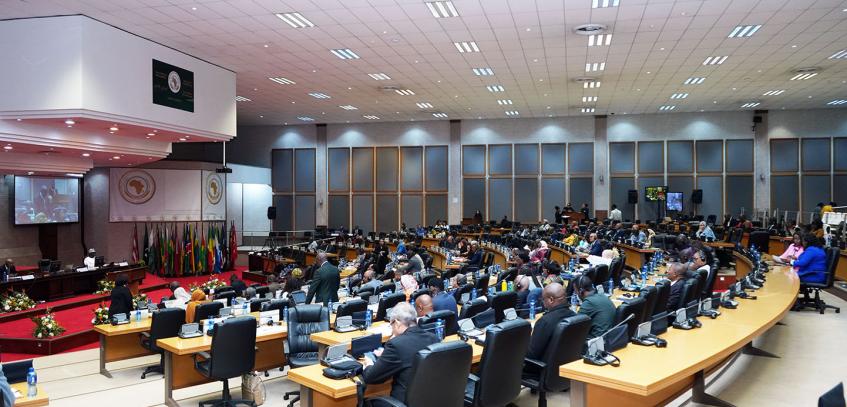The presentation and debate on the State of Financing the African Union by H.E. George Orina, Chairperson of the Permanent Representative Council (PRC) Sub Committee on General Supervision and Coordination of Budgetary, Financial and Administrative Matters (GSCBFAM), is a testament of the progress that the Pan-African Parliament (PAP) has made in recent years to re-event itself.
The Pan-African Parliament, despite its past challenges and struggles, is charting a new course that has started resonating with many of the Organs of the African Union, who have started extending a hand of cooperation to the Parliament.
Last year, a similar presentation on the State of Financing the Union, was made to the Pan-African Parliament by the then Deputy Chairperson of the African Union Commission, H.E Dr. Monique Nsanzabaganwa.
These two remarkable presentations on the finances of the African Union to the Pan-African Parliament forms part of the key functions of the Parliament, which it has not been able to exercise in the past due to lack of cooperation.
Article 11 of the Protocol to the Treaty establishing the African Economic Community Relating to the Pan-African Parliament bestow on the Parliament the powers to discuss its budget and the budget of the Community and make recommendations thereon prior to its approval by the Assembly of the African Union.
The Pan-African Parliamentwas established in March 2004, by Article 17 of the Constitutive Act of the African Union, as one of the nine Organs provided for in the Treaty Establishing the African Economic Community signed in Abuja, Nigeria, in 1991. The Protocol establishing the PAP was ratified by 49 Member States.
The establishment of the Pan-African Parliament is informed by a vision to provide a common platform for African peoples and their grass-roots organizations to be more involved in discussions and decision-making on the problems and challenges facing the continent.
Other functions of the PAP include to examine, discuss or express an opinion on any matter, either on its own initiative or at the request of the Assembly or other policy organs and make any recommendations it may deem fit relating to, inter alia, matters pertaining to respect of human rights, the consolidation of democratic institutions and the culture of democracy, as well as the promotion of good governance and the rule of law.
The functions include work towards the harmonization or co-ordination of the laws of the Member State; Make recommendations aimed at contributing to the attainment of the objectives of the OAU/AEC and draw attention to the challenges facing the integration process in Africa as well as the strategies for dealing with them; Promote the programmes and objectives of the OAU/AEC, in the constituencies of the Member States; Promote the co-ordination and Harmonization of policies, measures, programmes and activities of the Regional Economic Communities and the parliamentary fora of Africa; and Adopt its Rules of Procedure, elect its own President and propose to the Council and the Assembly the size and nature of the support staff of the Pan-African Parliament.








